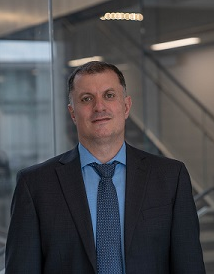2026 10th International Conference on Communication and Network Technology
Keynote Speakers

Prof. Abdallah Shami (Fellow of IEEE,
Fellow of AAIA, Fellow of EIC, Fellow of CAE)
Western University,
Canada
Biography: Dr. Shami is a Professor of Electrical
and Computer Engineering. He runs the OC2 Lab, the Optimized Computing
and Communications Research Laboratory.
https://www.eng.uwo.ca/oc2/people/shami.html

Prof. Gyu Myoung Lee
Liverpool John
Moores University, UK
Biography: Gyu Myoung Lee is a
professor at the Liverpool John Moores University (LJMU), UK. He was
affiliated with KAIST, Daejeon, Rep. of Korea, as an Adjunct Professor
from 2012 to 2024. Before joining the LJMU in 2014, he worked at the
Institut Mines-Telecom from 2008. Until 2012, he was invited to work at
ETRI, Rep. of Korea. He worked as a research professor at KAIST, Rep. of
Korea and as a guest researcher at NIST, USA, in 2007. His research
interests include Internet of Things, digital twin, computational trust,
blockchain with privacy preservation, data and AI governance, knowledge
centric networking and services considering all vertical services, Smart
Grid, energy saving networks, cloud-based big data analytics platform
and multimedia networking and services. Prof. Lee has been actively
participating in standardization meetings including ITU-T SG 13 and
SG20, IETF and oneM2M, etc., and currently serves as a Working Party
chair and the Rapporteur of Q16/13 on trustworthy networking and
services and Q4/20 on data analytics, sharing, processing and management
in ITU-T. He is the Vice-Chair of ITU-T FG-AINN as well as the Convenor
of Web3-adhoc. He was also the chair of ITU-T Focus Group on Data
Processing and Management (FG-DPM). He has contributed more than 500
proposals for standards and published more than 200 papers in academic
journals and conferences. He received several Best Paper Awards in
international and domestic conferences and served as a reviewer of IEEE
journals/conference papers and an organizer/member of committee of
international conferences. He is a Senior Member of IEEE.
Prof. Lee
received his BS degree in electronic and electrical engineering from
Hong Ik University, Seoul, Rep. of Korea, in 1999 and MS, and PhD.
degree from KAIST, Daejeon, Rep. of Korea, in 2000 and 2007,
respectively.
More speakers will be announced soon...